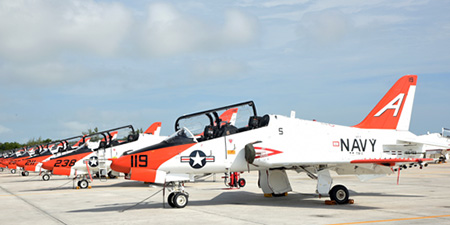
Have you ever wondered how much schooling is required to become a flight attendant? It’s a valid question, especially for those who are considering a career in the aviation industry. While there is no specific degree or formal education requirement to become a flight attendant, there are certain training programs and qualifications that must be completed. In this article, we will discuss the length of time it typically takes to go through the necessary training and education to become a flight attendant.
Becoming a flight attendant involves a combination of classroom instruction, hands-on training, and on-the-job experience. The length of time it takes to complete these requirements can vary depending on the airline and training program, but typically ranges from four to eight weeks. During this time, aspiring flight attendants learn about safety procedures, emergency protocols, customer service skills, and aircraft operations.
In addition to the initial training program, flight attendants are also required to maintain certain certifications and complete annual recurrent training. This ongoing training ensures that flight attendants stay up-to-date on the latest safety procedures and regulations. Overall, the process to become a flight attendant can take several months to a year, depending on the individual’s dedication and the specific requirements of the airline. In the next paragraphs, we will delve into more detail about the specific training programs and education requirements for aspiring flight attendants. Stay tuned to learn more about what it takes to pursue a career as a flight attendant!
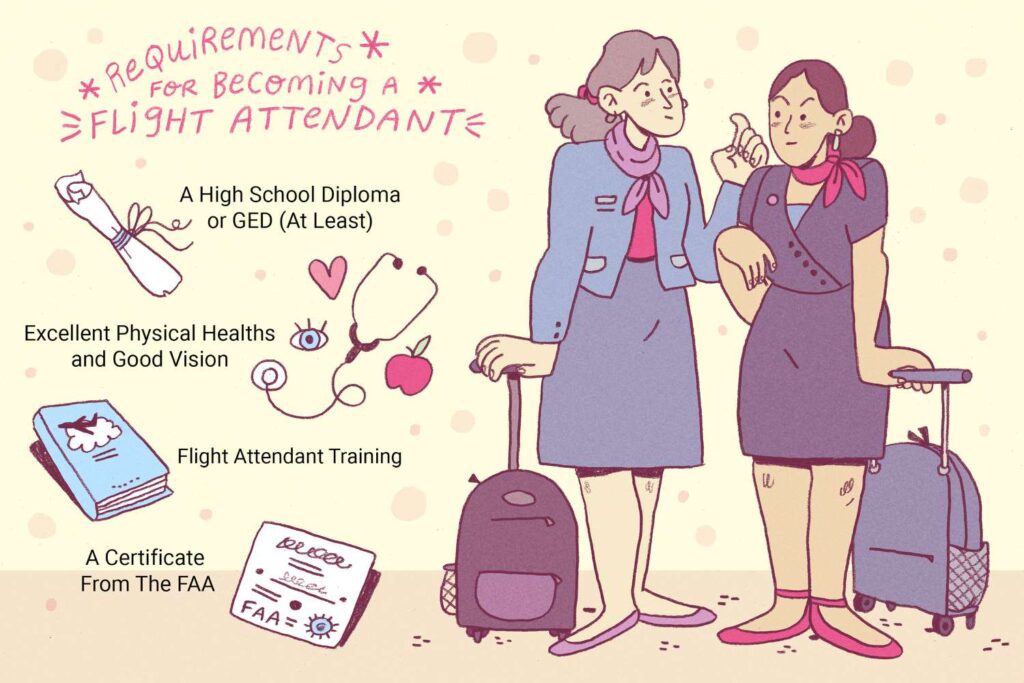
Education Requirements
To become a flight attendant, you will typically need a high school diploma or equivalent. However, some airlines may require additional education or training. While a college degree is not necessarily required, having one can be beneficial and may give you a competitive edge in the job market. Additionally, some flight attendant positions may require a certain level of education or specific coursework, such as a degree in hospitality or tourism. It is important to research the specific requirements of the airlines you are interested in to ensure you meet their educational qualifications.
Flight Attendant School
Enrolling in a flight attendant training program is the next step towards pursuing a career in this field. These programs are designed to provide comprehensive training in all aspects of the job. The curriculum typically includes courses in safety procedures, customer service, and emergency protocols. By completing these courses, you will develop the necessary skills and knowledge to perform your duties effectively and ensure the safety and comfort of passengers on board.
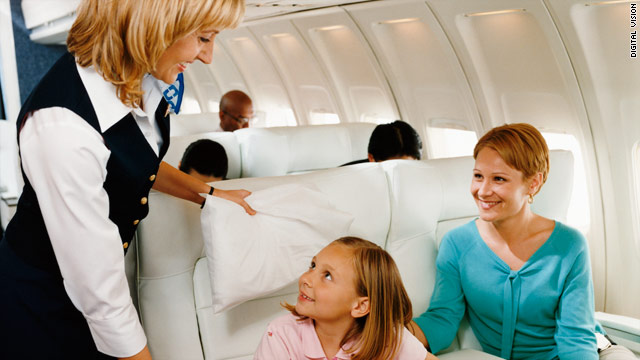
Duration of Flight Attendant Training
The duration of flight attendant training programs can vary, but they generally last between 4 to 8 weeks. This timeframe allows for both classroom instruction and hands-on training. During this period, you will learn about the specific procedures and protocol of the airline you will be working for. Classroom instruction will cover topics such as safety regulations, customer service techniques, and emergency response procedures. Hands-on training may include practice evacuations, demonstrating the use of safety equipment, and learning proper service techniques.
Certifications and Licenses
Obtaining certification from the Federal Aviation Administration (FAA) is an essential requirement for aspiring flight attendants. The FAA requires all flight attendants to complete training and pass an examination to become certified. This certification ensures that you have the necessary knowledge and skills to perform your duties safely and effectively. In addition to FAA certification, airlines may also require flight attendants to pass a background check and drug test before being hired.
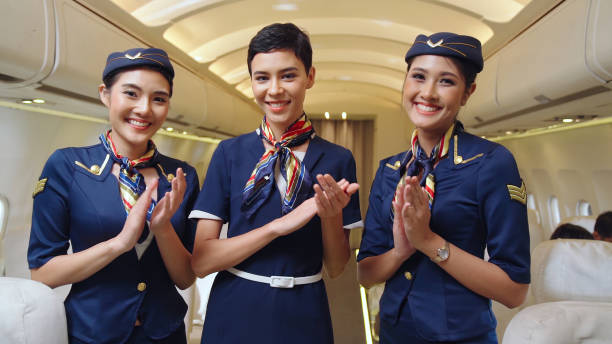
Language Skills
Fluency in English is usually a requirement for flight attendants. Since English is the universal language of aviation, it is important for flight attendants to be able to communicate effectively with passengers and crew members. In addition to English proficiency, knowledge of additional languages can be beneficial, particularly if you wish to work for international airlines or routes. Being able to speak multiple languages can enhance your ability to provide excellent customer service and cater to the needs of diverse passengers.
Physical Requirements
Flight attendants must meet certain physical requirements to perform their duties effectively. These requirements may include meeting height and weight guidelines, as well as having good overall health and physical fitness. The physical demands of the job can be strenuous, as flight attendants often engage in activities such as lifting heavy objects, standing for long periods of time, and maneuvering in confined spaces. Airlines have these requirements in place to ensure that flight attendants are physically capable of meeting the demands of the job and can perform their duties without any limitations.
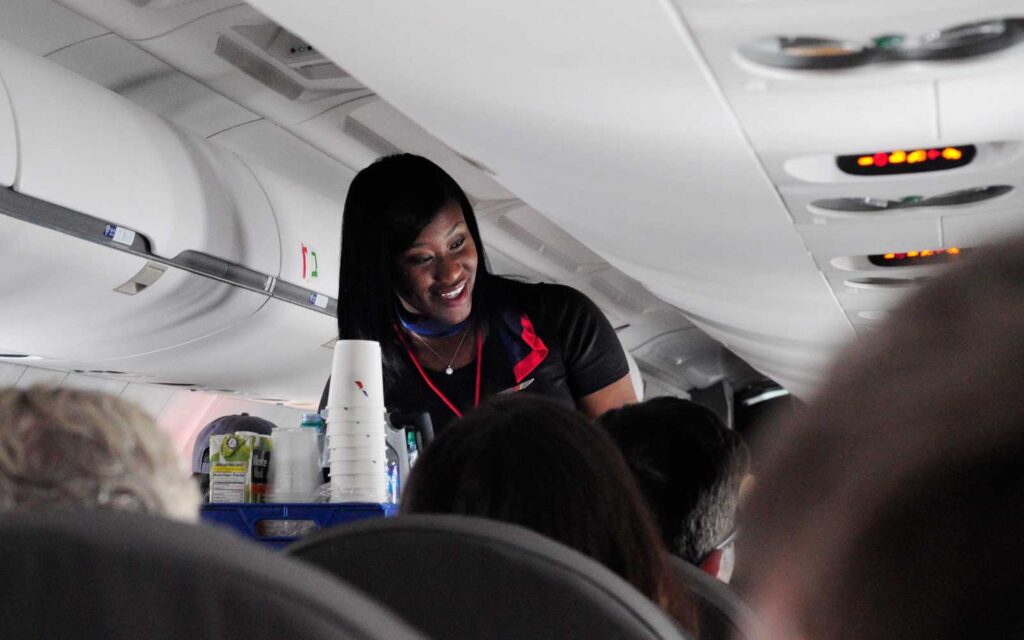
Customer Service Skills
Strong interpersonal and communication skills are essential for flight attendants. As the primary point of contact for passengers during a flight, flight attendants must be able to interact with people from various backgrounds and effectively communicate with them. They must be able to provide exceptional customer service, handle difficult situations with professionalism, and be empathetic towards passengers’ needs. Being able to remain calm and composed under pressure is also crucial, as flight attendants often encounter challenging situations and must be able to resolve conflicts and address issues efficiently.
Safety and Emergency Procedures
Flight attendants are responsible for ensuring the safety of passengers on board. Therefore, knowledge of safety protocols, evacuation procedures, and first aid is essential. Flight attendant training programs include comprehensive education on these topics, teaching you how to respond to emergencies and handle various situations that may arise during flights. Flight attendants must remain calm and composed during emergencies, follow established procedures, and assist passengers in evacuating the aircraft if necessary. Having the ability to think quickly and make sound decisions under pressure is crucial for maintaining the safety of passengers and crew members.
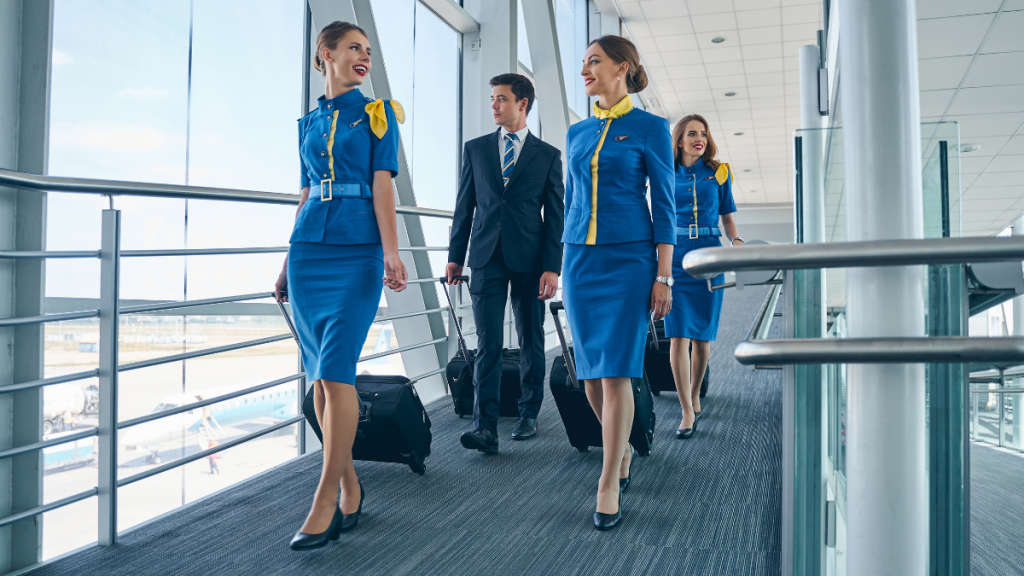
Professional Appearance
Maintaining a polished and professional appearance is an important aspect of being a flight attendant. Airlines often have grooming standards in place, which may include guidelines regarding hairstyles, makeup, jewelry, and uniform presentation. Flight attendants are expected to adhere to these standards and maintain a neat and professional appearance at all times. This helps create a positive impression on passengers and contributes to the overall image of the airline.
On-the-Job Training
After completing the initial flight attendant training program, newly hired flight attendants undergo additional training with their respective airline. This training is specific to the airline and covers topics such as aircraft procedures, company policies, and service standards. It is during this on-the-job training that flight attendants gain practical experience and further develop their skills. This training period provides an opportunity to learn about the specific aircraft they will be working on, as well as the unique requirements and expectations of the airline.
Continuing Education
The aviation industry is constantly evolving, and flight attendants are expected to stay current with safety regulations and industry standards. Ongoing training and recertification are required throughout a flight attendant’s career. Airlines provide regular training sessions to ensure that flight attendants are up to date with any changes in policies, procedures, and regulations. Continuous education allows flight attendants to enhance their skills and knowledge, ensuring they can perform their duties effectively and meet the evolving demands of the industry.
Career Advancement Opportunities
As flight attendants gain experience and demonstrate their abilities, there are opportunities for career advancement. Flight attendants can progress to lead positions, where they provide training and guidance to new hires. Additionally, some flight attendants may choose to obtain additional certifications for specialized positions, such as becoming a purser or an instructor. These certifications demonstrate expertise in specific areas and can open up higher-level positions within the airline.
Job Outlook
The job outlook for flight attendants is expected to grow at a steady pace in the coming years. As airlines continue to expand their fleets and increase their flight schedules, the demand for flight attendants will continue to rise. However, competition for positions with major airlines can be fierce, as many individuals are attracted to the benefits and travel opportunities that come with this career. To increase your chances of securing a flight attendant position, it is important to have a combination of education, training, and personal qualities that align with the requirements of the industry.
Conclusion
In conclusion, becoming a flight attendant requires a combination of education, training, and personal qualities. While a high school diploma is the minimum requirement, additional education or training may be necessary, depending on the airline. Flight attendant training programs provide the necessary knowledge and skills to perform the job effectively, with durations typically lasting between 4 to 8 weeks. Certification from the FAA, along with meeting physical requirements, having strong customer service skills, and knowledge of safety and emergency procedures, are all essential for success in this career. Ongoing education and training throughout a flight attendant’s career ensure they stay up to date with industry regulations and standards. With the right qualifications, individuals can embark on a rewarding career in the aviation industry as a flight attendant.


